2019-2020 IS Fellowship Alumni
In 2019, the JHU CFAR received funding to initiate an inter-CFAR Implementation Science Fellowship for early stage investigators in HIV-related research. Our inaugural cohort included 27 trainees from 15 institutions across the U.S.
Meet Our inter-CFAR 2019-2020 Implementation Science Fellows

Aima Ahonkhai is a physician scientist trained in infectious diseases and HIV medicine. She has focused her research efforts on understanding drivers of healthcare utilization and medication adherence, among people living with HIV, and developing interventions to address these outcomes in Nigeria and in the Southeastern US. She is particularly interested in utilizing digital solutions to improve these outcomes among adolescents and young adults living with HIV.

Angela Bazzi, PhD, MPH, is an Assistant Professor of Community Health Sciences at the Boston University School of Public Health and a Boston University Peter Paul Professor. Dr. Bazzi’s quantitative and qualitative research seeks to identify, develop, and refine strategies to improve the health of socially marginalized populations affected by HIV and substance use. Recent and ongoing research projects have explored the HIV/STI prevention needs of female and male sex workers and their partners, male couples, and people who use and inject drugs in Mexico, Kenya, Ghana, and Boston. With funding from the National Institute on Drug Abuse (NIDA; K01DA043412) and the Providence/Boston Center for AIDS Research (CFAR), she is currently investigating the underutilization of antiretroviral pre-exposure prophylaxis (PrEP) for HIV prevention among people who inject drugs in urban and non-urban areas of the U.S. Northeast. Dr. Bazzi received a PhD in Global Health from the University of California, San Diego, and an MPH from the Johns Hopkins School of Public Health. She completed postdoctoral training at the Harvard School of Public Health. Prior to her research training, she was a Reproductive Health Fellow at the United States Agency for International Development.

Nivedita Bhushan is currently a Postdoctoral Fellow with the Institute for Global Health and Infectious Diseases at the University of North Carolina at Chapel Hill (UNC). Her research examines how social relationships influence health outcomes during adolescence and pregnancy, particularly in global contexts with a high burden of HIV. She received a PhD in Health Behavior from UNC, an MA in International Development Studies from the George Washington University, and a BA in Economics and International Politics from the Pennsylvania State University.
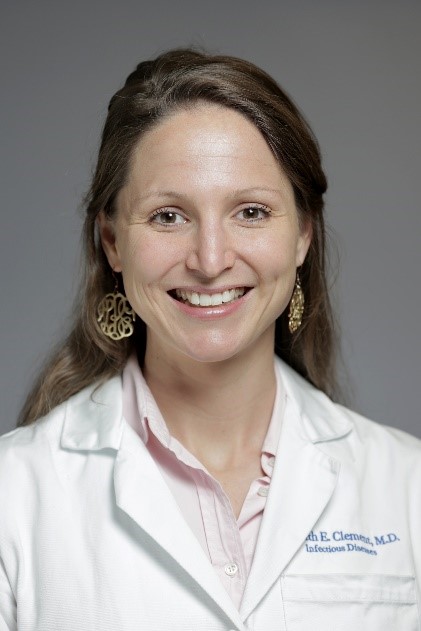
Dr. Meredith Clement received her medical degree from the University of Pennsylvania, after which she completed her residency training in Internal Medicine and fellowship in Infectious Diseases at Duke University. She recently moved to New Orleans were she is now Assistant Professor in Infectious Diseases at Louisiana State University Health Sciences Center. She provides HIV treatment and prevention care at the ID Center at University Medical Center. Her research focuses on HIV and STI prevention, especially among vulnerable populations including racial and sexual minority populations in the South. She has a K23 from NIAID to study STI prevention in Black men who have sex with men who are prescribed PrEP.
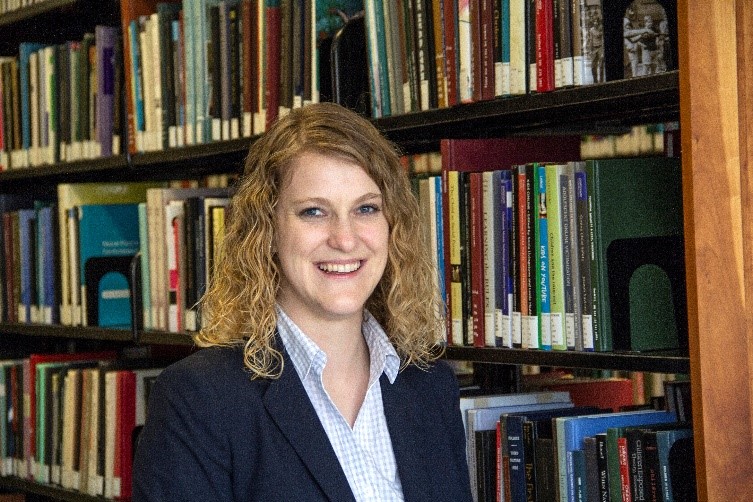
Dr. Alissa Davis is an epidemiologist and Assistant Professor at Columbia University School of Social Work. Her research focuses on the development of HIV/STI and substance use interventions for marginalized populations, including racial/ethnic and sexual minorities, individuals involved with the criminal justice system, and people who inject drugs. She currently has a NIDA-funded K01 to develop a couple-based HIV medication adherence intervention for people who inject drugs in Kazakhstan. Recently, her research interests have expanded to focus on adaptive intervention designs and adolescent populations. She has worked both domestically and internationally in Eastern Europe and Central Asia and China, and her work has been supported by the National Institute of Drug Abuse, the National Institute of Mental Health, the Fogarty International Center, and the Mellon Foundation.

Rupali K. Doshi, MD, MS, is an Assistant Research Professor and is currently embedded at the District of Columbia Department of Health, HIV/AIDS, Hepatitis, STD and TB Administration, as the Chief of the Strategic Information Division. Dr. Doshi has a secondary appointment in the School of Medicine and Health Sciences and is a infectious diseases physician at the Washington DC Veterans Affairs Medical Center.

Dan Escudero is a research associate in the Department of Epidemiology at Harvard. His work focuses on HIV prevention within marginalized and vulnerable populations. Much of his work has examined the role of antiretroviral-based prevention, such as PrEP and treatment as prevention, as well as mathematical modeling of HIV transmission. His research has been applied to both domestic and international settings, most recently on HIV elimination efforts in Miami, FL, and HIV treatment access in Botswana. Dan received a PhD in epidemiology from Brown and an MPH from Emory.

Esther E. Freeman MD, PhD, DTM&H is Assistant Professor of Dermatology at Harvard Medical School. She is the Director of MGH Global Health Dermatology. Dr. Freeman is a Dermatologist and PhD-trained Epidemiologist focusing on HIV associated malignancies in East Africa and currently holds an IS-centered NIAID-funded K23 focused on improving the care cascade for HIV Associated Kaposi’s Sarcoma in Sub-Saharan Africa.

William Goedel is a doctoral candidate in the Department of Epidemiology at the Brown University School of Public Health. He earned his Bachelor of Arts in global public health and sociology from the New York University College of Global Public Health in 2017. His research uses network science and modeling to improve pre-exposure prophylaxis (PrEP) implementation among gay and bisexual men and to inform implementation efforts for the next generation of biomedical prevention methods.
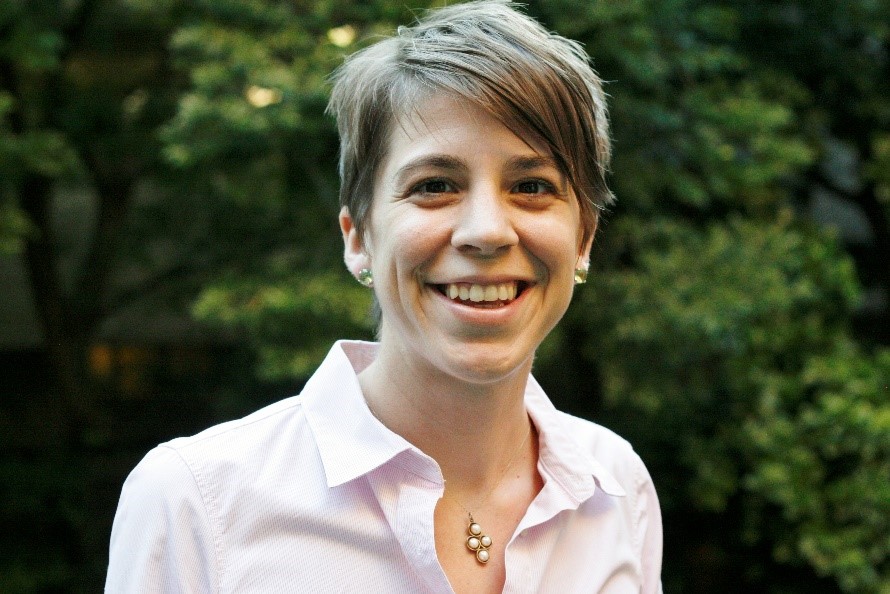
Colleen Hanrahan, PhD, is an infectious disease epidemiologist whose research is broadly focused on understanding the impact of interventions to control tuberculosis, particularly within the context of the HIV pandemic. As new tools for diagnosis, treatment and prevention become available, her goal is to understand, refine and improve their implementation in order to significantly bend the curve of the TB epidemic.

Dr. Audrey Harkness is an Assistant Professor (Research) at in the Department of Public Health Sciences (Prevention Sciences and Community Health Division) at the University of Miami. She is also appointed as secondary faculty in the Psychology Department at UM, where she is collaborator of the Health Promotion and Care Lab. Dr. Harkness’ research focusing on optimizing mental and physical health for sexual and gender minority communities and individuals affected by HIV. Building on her clinical research experiences, her recent work is increasingly focusing in increasing the equitable delivery of evidence-based HIV-prevention and behavioral health services to Latino sexual minority men, an area that she plans to continue working in the future.

Dr. Ingrid Katz, MD, MHS is the Associate Faculty Director of the Harvard Global Health Institute, and an Assistant Professor in Medicine at Harvard Medical School. She serves as an Associate Physician in the Department of Medicine at Brigham and Women's Hospital and is a research scientist at the Center for Global Health at Massachusetts General Hospital. Her research over the past decade has focused on the social determinants of health-seeking behavior among people living with HIV in sub-Saharan Africa, with the goal of developing sustainable, socio-behavioral interventions aimed at improving care for the most underserved. She is trained in Infectious Diseases and received her MD from the University of California at San Francisco and trained in Internal Medicine at Brigham and Women’s Hospital, and in Infectious Diseases at Beth Israel Deaconess Medical Center. She completed a fellowship in Global Women’s Health at Brigham and Women’s Hospital and has been on staff there since 2009. She has been consistently funded as a Principal Investigator through the National Institutes of Health since 2012 and has served as an Editorial Fellow and a National Correspondent for the New England Journal of Medicine.

Andrew Kerkhoff, MD, PhD, is a third year infectious disease fellow in the Division of HIV, Infectious Diseases and Global Medicine and is an HIV provider at Zuckerberg San Francisco General Hospital at the University of California, San Francisco. His primary research is based in Zambia and is focused on gender-disparities in the tuberculosis (TB) care cascade as well as development and implementation of community-based case finding strategies for TB. He also has a longstanding research interest in identifying improved means for diagnosing HIV-associated TB and is involved in several ongoing studies related to the evaluation of improved screening strategies and novel point-of-care diagnostics.

Dr. Natalie Leblanc is a Tenure Track Assistant Professor in HIV prevention science at the University of Rochester, School of Nursing. Her program of research addresses two lines of inquiry: 1) health provider (e.g. physicians, nurses, social workers) processes in sexual health promotion, specifically couple-centered approaches in HIV prevention and treatment, and 2) ecological influences of sexual health including HIV/STI transmission among vulnerable populations, such as women of color and non-heteronormative populations such as men of color who have sex with men. Both lines of inquiry aim to address health inequity in sexual health by discerning assets in the provider perception and practice as well as among couples/partners and individuals that can be leveraged to support sexual wellness.

Karsten Lunze is an assistant professor at Boston University (BU). He holds a medical degree and doctorates in genetic epidemiology and public health. Following clinical residencies in pediatrics at Charité Berlin and the Johns Hopkins Children's Center, and in public health and preventive medicine at BU, he has conducted research concerned with individual and structural risks among people in HIV key populations. Karsten's R00 and CFAR-supported research in Eastern Europe explores stigma related to addictions, HIV, TB and other conditions among marginalized populations.

Kathryn Macapagal, Ph.D., (she/her) is a research assistant professor in the Departments of Medical Social Sciences and Psychiatry and Behavioral Sciences at Northwestern University and core faculty at the Institute for Sexual and Gender Minority Health and Wellbeing. She earned a PhD in clinical psychology from Indiana University, where she trained at the Kinsey Institute for Research in Sex, Gender, and Reproduction. She completed a clinical internship in medical psychology and HIV/AIDS at the Medical College of Georgia-Charlie Norwood VA Medical Center, and postdoctoral training in health services and outcomes research at Northwestern University’s Center for Healthcare Studies. Her work spans the translational research spectrum and has recently focused on three main areas: 1) understanding ethical issues in sexual health and HIV prevention research and healthcare with sexual and gender minority adolescents; 2) developing in-person and eHealth/mHealth approaches to sex education and HIV prevention among adolescent and young adult men who have sex with men; and 3) examining the role of new media and technology (e.g., geosocial networking applications) in sexual and gender minorities’ sexual health, romantic relationships, identity development, and well-being.

Dr. Itai M`yambo Magodoro completed medical school at the University of Malawi’s College of Medicine and holds postgraduate degrees from Stellenbosch University, South Africa, and Harvard Medical School. His primary area of interest is cardiovascular disease in global health settings. As a Fogarty Fellow he conducted HIV-related research among adolescents in Cape Town, South Africa – where his focus was on cardiovascular disease among adolescents perinatally infected with HIV.

Dr. Kenneth Mugwanya is a physician-epidemiologist and Assistant Professor in Department of Global Health at University of Washington. His research focus on multidisciplinary work to develop, evaluate, and implement novel biomedical interventions likely to have the greatest impact to prevent new HIV infections. Since 2014, he has led or collaborated on research focused on HIV prevention, including immunologic and epidemiologic studies of correlates for HIV transmission, pharmacologic studies of antiretroviral PrEP, clinical trials of novel prevention interventions, and implementation science research. He led cutting-edge studies for HIV prevention field to quantify and interpret the risk and safety of oral tenofovir-based PrEP in African men and women, demonstrating limited kidney toxicity and limited breastmilk excretion and infant absorption of PrEP medications via breastfeeding. Current work includes implementation science studies to define efficient care pathways to deliver PrEP in African public health systems (R00MH118134) and pharmacologic studies to optimize antiretroviral PrEP use in women. He also serves as overall director for two large PrEP studies in Kenya – one aiming at national scale-up of PrEP in HIV care clinics (Partners Scale-Up Project) and the recently conclude other to integrate PrEP delivery in antenatal care and family planning clinics (PrIYA).

Dr. Sue Napierala is a Senior Research Epidemiologist at RTI International. Her work focuses on HIV, reproductive health, and health disparities. She is involved in research on innovative strategies to scale up HIV testing and engagement across the HIV prevention and care continuums, particularly among key and hard-to-reach populations.

Nadia Nguyen is a Post-Doctoral Research Fellow at the HIV Center for Clinical and Behavioral Studies at Columbia University and New York State Psychiatric Institute. Dr. Nguyen’s research focuses on behavioral and psychosocial risk factors for HIV acquisition and poor HIV health outcomes among youth during the transition from adolescence to young adulthood. She is particularly interested in strategies for improving ART adherence and care engagement, including the use of mobile technology and novel measures of ART adherence and care engagement. Dr. Nguyen received her MSPH and PhD in Epidemiology from the University of North Carolina at Chapel Hill.

Preeti Pathela has been with the New York City Department of Health and Mental Hygiene’s Bureau of Sexually Transmitted Infections for 15 years. As the program’s Director of Research and Evaluation, she examines patterns in STI (including HIV) outcomes among clinic-based populations, and at the population level, to develop research questions around local STI/HIV risk and prevention. She leads/consults on analyses of both NYC and multi-jurisdictional data that have been used to guide programmatic action, as well as for contribution to the scientific literature. Preeti received her DrPH degree in Epidemiology from the Johns Hopkins Bloomberg School of Public Health and her MPH from Emory University.

Nicholas Perry, Ph.D. is currently a postdoctoral fellow at the Alpert Medical School of Brown University funded on an NIMH T32 focused on HIV prevention. Dr. Perry completed his Ph.D. in clinical psychology in 2018 at the University of Utah. His research interests focus on LGBT health disparities, particularly HIV and interpersonal violence, as well as the influences of social relationships on these disparities. He also has an interest in the use of technology to increase access to evidence-based treatments for marginalized populations.
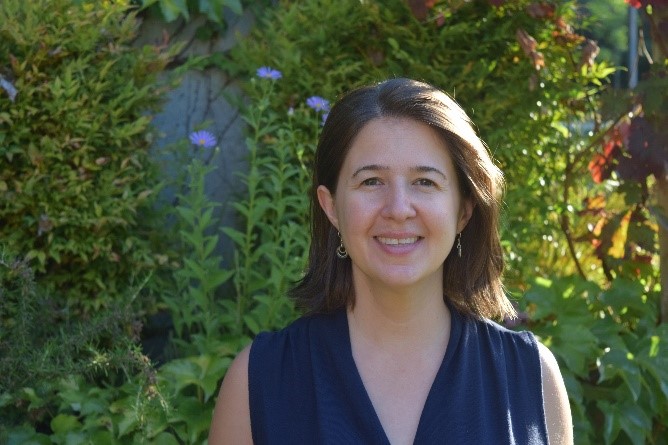
Maria Pyra is the Senior Epidemiologist at the Howard Brown Health Center, as well as a postdoctoral scholar at the University of Chicago. She received her MPH in epidemiology from the University of Illinois at Chicago and worked at the Women’s Interagency HIV Study before earning her PhD at the University of Washington. Her current work focuses on HIV and STI prevention in the Chicago-area and looks forward to learning implementation methodology to evaluate prevention programs in real-world clinical settings.

Amrita Rao is a second year PhD student in General Epidemiology and Methodology and the Johns Hopkins School of Public Health. Amrita received her ScM in Epidemiology from Johns Hopkins and her BS in Human Biology Health and Society from Cornell University. Her research interests center on the intersection of sexual and reproductive health and HIV, including female sex worker specific interventions and HIV prevention for adolescent girls and young women. As part of her doctoral work, she hopes to gain skills in the application of quasi-experimental designs and the use of routinely-collected data for causal inference.
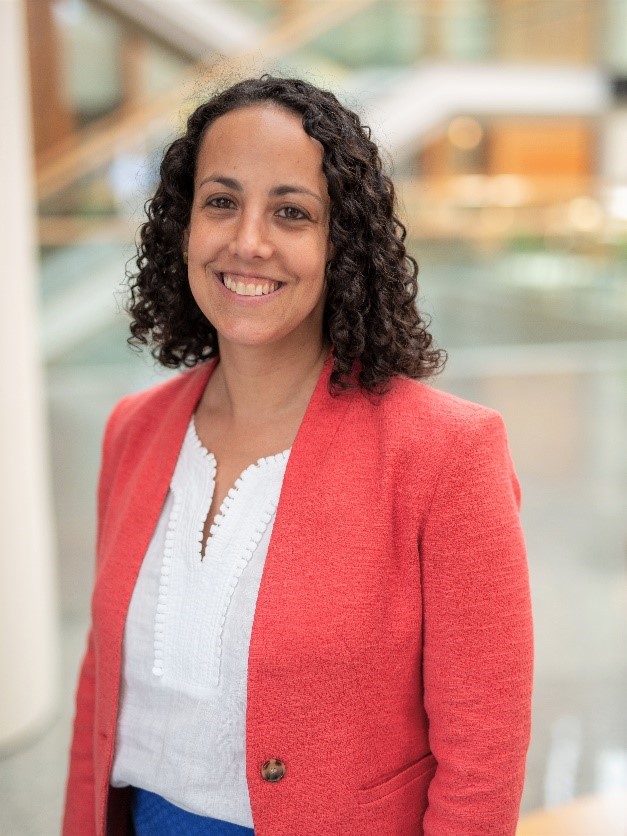
Nora E. Rosenberg, PhD, MSPH, is an Assistant Professor of Health Behavior at the Gillings School of Global Public Health. Her research is focused on developing, implementing, and evaluating interventions to support HIV testing, prevention, care and treatment in sub-Saharan Africa. She has developed models of youth-friendly health services for adolescent girls and young women and couple-based approaches for pregnant women. Her randomized trial of provider-assisted partner notification informed the World Health Organization Guidelines on HIV Self-testing and Partner Notification.

Katherine Rucinski is an epidemiologist and Postdoctoral Fellow in the Department of Epidemiology at the Johns Hopkins Bloomberg School of Public Health. Katherine’s research aims to better understand diversity in structural vulnerability and sexual decision-making to inform more holistic sexual and reproductive health programs for women and girls in sub-Saharan Africa. She holds a PhD in epidemiology (UNC-Chapel Hill, ’18), a MPH in International Health (NYU ’09), and a BA in Religious Studies and Spanish Literature (NYU ’06).

Tiara Willie, Ph.D., M.A., is a social epidemiologist. Dr. Willie’s research examines social-ecological determinants influencing the etiology and health consequences of gender-based violence (e.g., intimate partner violence, reproductive coercion, sexual assault). This research focuses on individual-, relationship-, community-, and societal-level determinants of gender-based violence and examines the health implications of gender-based violence in order to develop interventions to reduce violence and improve mental, sexual, and reproductive health. One of her most active areas of research examines gender-based violence and its interaction with HIV risk factors and prevention methods using novel epidemiological approaches. For example, this work currently investigates: 1) the acceptability of biomedical HIV prevention for women experiencing intimate partner violence, 3) the influence of social networks on uptake of biomedical HIV prevention among women experiencing intimate partner violence, and 3) the feasibility of a multisector HIV prevention collaboration for women experiencing intimate partner violence.